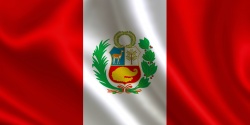Published: 15.11.2023

· The Peruvian Congress has passed a law recognising certain rights of unborn children.
· According to the act, the conceived child is "a subject of rights with the full status of a human person". Among other things, it has the right to "develop freely in the womb".
· Until now, the rights of unborn children were not mentioned in a separate act, but in the Peruvian Constitution and civil legislation.
· The new regulation dedicated to the protection of the rights of unborn people is entitled 'Ley que reconoce derechos al concebido', which can be translated as 'Law recognising the rights of the conceived'.
Concretisation of constitutional provisions
Prior to the enactment of this law, the protection of the life of conceived children stemmed from the Peruvian Constitution and certain laws. The legal situation of the unborn was thus similar to that in Poland, where the guarantee of protection of this most important human value results not only from Article 38 in connection with Article 30 of the current Constitution of the Republic of Poland, but also from the very principle of a democratic state of law included in Article 2 of the Constitution of the Republic of Poland (cf. the judgment of the Constitutional Tribunal of 28 May 1997, ref. K 26/96). Also, among others, the Polish Civil and Criminal Codes contain provisions from which the obligation to respect and protect the life and other interests of the child in the prenatal stage of development directly follows (cf. e.g. Articles 152 - 154 of the Criminal Code and Article 927 of the Civil Code). Peru went one step further and, in order to curb artificially induced debates on whether the conceived child is a human being, the parliament passed a law explicitly recognising "the unborn child as a subject of rights with the full status of a human person" (Article 1). As the legislator pointed out, "in drafting this law, the need to elaborate and detail the list of rights that our Constitution is precisely designed to protect from conception was recognised".
Recognised rights of the unborn
The new Peruvian law recognises, among other things, that the conceived child has a distinct genetic identity (unique and unrepeatable, independent of the mother) and is endowed with its own personality (Article 2). A further, Article 3 of the Law amends the provisions of the Civil Code and recognises that human life begins at conception and guarantees respect for the dignity of the conceived child, as well as its right to life, identity, mental and physical integrity, and free prenatal development. Article 4 of the law lists the various rights subject to special protection, among which, of course, the right to life and health is foremost, but also the right to "free development in the womb". The law does not overlook the rights of mothers either, in Article 5 guaranteeing mothers access to health care and necessary counselling during pregnancy. The final Article 6 deals with situations in which a threat to the life of the mother or the conceived child arises. In it, the legislator indicated how health professionals should act in such cases: "have the duty to inform [the patient] of the diagnosis, treatment and their effects on the life and health of the pregnant woman and the conceived child". In cases where "the treatment endangers the life of either of them, the medical measures to be carried out shall be decided by the mother or the spouse, partner or relatives up to the second degree of consanguinity and the first degree of affinity".
"A uniform level of legal protection of human life, regardless of the state of health or stage of development of a human being, should be the standard. The Peruvian law can also be an inspiration for the Polish legislator in many aspects - especially in view of the draft laws weakening the legal protection of the life of the unborn, which were submitted during the first session of the Polish Sejm," emphasised Łukasz Bernaciński, member of the board of the Ordo Iuris Institute.

During Holy Week, when we remembered the martyrdom of Jesus, many Poles heard about the innocent death of 9-month-old Felek (such an altered name was given to him by Gazeta Wyborcza journalists). Potassium chloride – a substance used to carry out death sentences – was injected into the heart of the boy who was due to be born any day.

• Gazeta Wyborcza published an article titled "Ordo Iuris Wants the Constitutional Court to Delete the Premise of Endangering a Woman’s Health. Prof.

17.04.2025
• The Ordo Iuris Institute has prepared an opinion for the UN as part of a thematic report on surrogacy and its impact on the rights of women and children.

The Court of Appeals in Lublin, Poland, has upheld the verdict of the Regional Court in Radom, sentencing a gynecologist to one year of imprisonment, suspended for three years. The doctor must also pay PLN 6,000 to the State Treasury in legal costs.